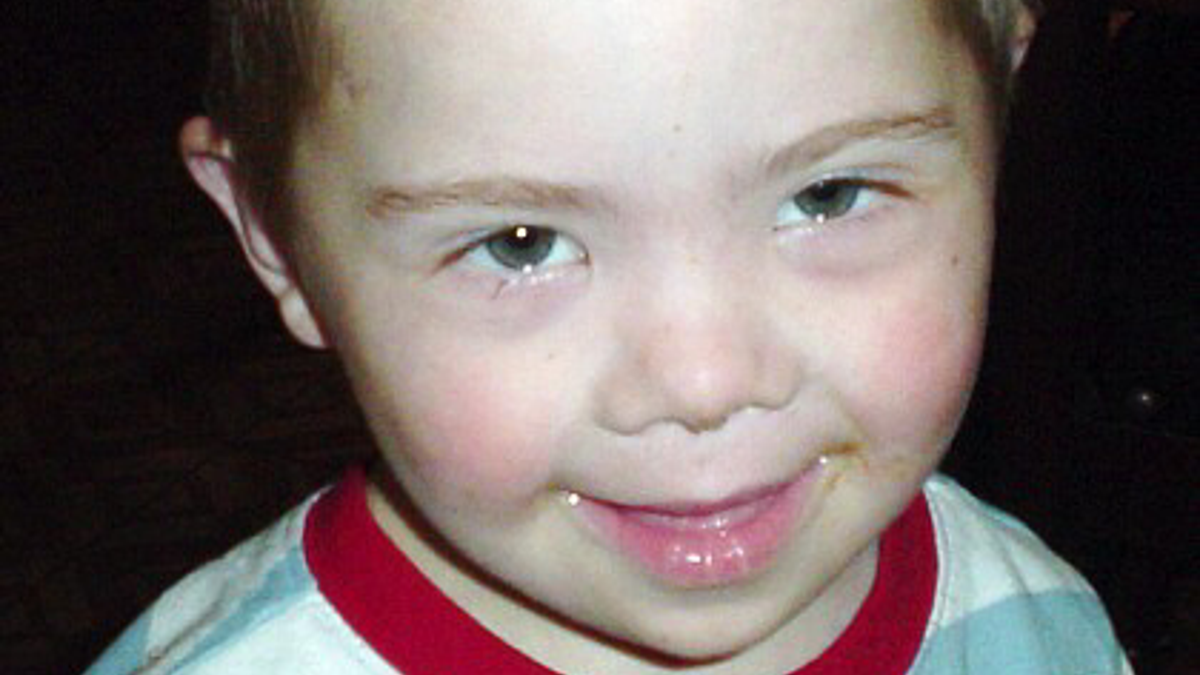
Canaan Rogers (Courtesy Rebecca Rogers)
My seven-month-old nephew Canaan was dying and nobody knew it, including his doctor, who had misdiagnosed his digestive issues. The real issue was Hirschsprung’s disease, one of the leading causes of death for kids like Canaan, who has Down Syndrome.
One afternoon, Canaan became totally listless — to the point of almost looking dead. By the time my brother Caleb and his wife, Rebecca, got Canaan to the emergency room, his body had gone into septic shock. Doctors and nurses scrambled to rescue him as someone quickly ushered Caleb and Rebecca into the waiting area.
Right there in the emergency room, Rebecca did something remarkable: She got down on her knees and said, “God, I’m going to worship You right now. No matter what happens, You’re still holy. You’re still good.”
Caleb and Rebecca’s trust in God’s goodness would be tested in the coming days. Canaan was on life support and the doctors kept bringing one negative report after another. The extraordinary measures they were taking weren’t working.
Four days after Canaan was admitted, a doctor sat down with Caleb and Rebecca and made it clear where things were headed: “Canaan is climbing a mountain that’s too high for him, and we’re just trying to make him comfortable at this point.”
Four days after Canaan was admitted, a doctor sat down with Caleb and Rebecca and made it clear where things were headed: “Canaan is climbing a mountain that’s too high for him, and we’re just trying to make him comfortable at this point.”
Nothing could be done to save him — or so it seemed.
In the days before social media, we began a massive prayer movement with the help of an email that was forwarded around the world. Hundreds of people joined our family in standing in faith for Canaan.
A couple of days later, doctors reported that something unexplainable was happening: Canaan’s badly damaged small intestine was churning back to life. His little body was making a comeback.
It’s hard to convey the thrill of that news to everyone. There were cheers and celebratory emails going around, high-fives and hallelujahs. But after we got our breakthrough, the miracle got complicated.
Canaan gradually improved, but he still spent several weeks in the hospital. Since then, he has been through countless surgeries, survived serious infections and still has significant digestive problems.
Yes, he brings a great deal of love and joy to our family, but it comes with a heavy burden for him.
Our miracle didn’t fix everything.
Maybe you’re asking God for a miraculous intervention today. He may very well provide it — a baby, a spouse, a job, a financial breakthrough or healing. Until we get that miracle, it’s easy to think, “If I just get this one thing I’m asking for, I’ll know for sure that God is good.”
Miracles do powerfully reveal God’s goodness, but then we have to keep on living everyday life, which is often full of disappointment and grief.
We’re not alone in that though. “Even though Jesus was God's Son, He learned obedience from the things He suffered” (Hebrews 5:8). If Jesus, the miracle maker, didn’t get a pass on suffering, we won’t either.
Jesus said, “Blessed are those who believe without seeing Me” (John 20:29). And in those lonesome hours when we can’t see Him, we’ve got to ask God for the gift of faith.
Only God can give us the grace to believe when it seems like there’s no miracle to be found; but when He does, the result is truly miraculous. We can, like my sister-in-law, bow down in the darkness and declare, “God, I’m going to worship You right now. No matter what happens, You’re still holy. You’re still good.”








































